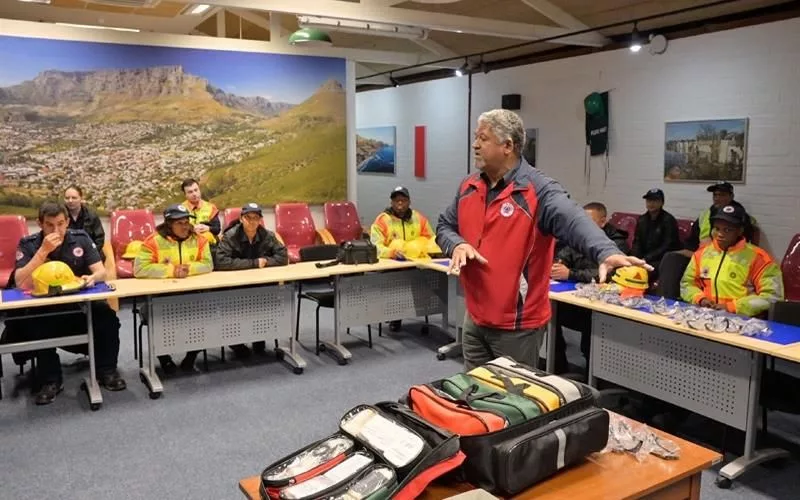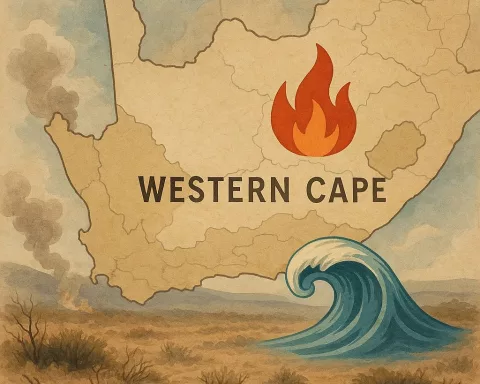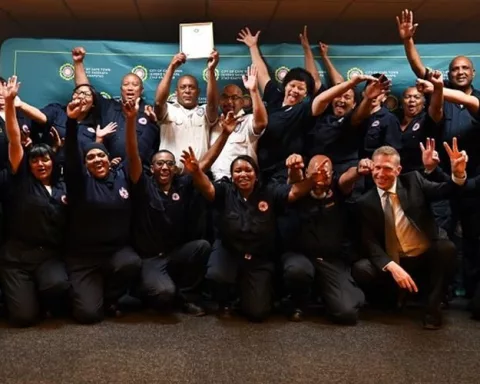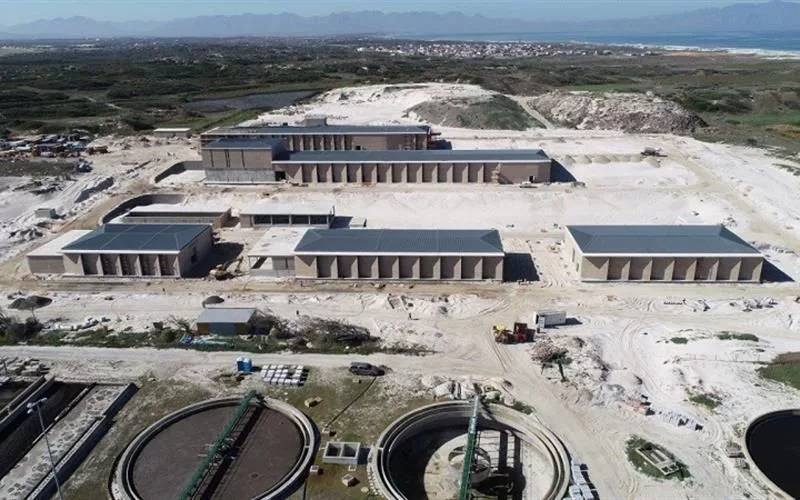The Disaster Risk Management Centre in Cape Town relies on a team of committed volunteers to tackle extreme weather events and reduce disaster risks. These unsung heroes spend an astounding amount of time supporting the centre officials and participating in training sessions to improve their abilities in disaster management. From April to June, these heroic citizens committed over 18,000 hours of service, equivalent to over 769 days of unbroken work. Their selfless dedication serves as a beacon of hope and resilience for Cape Town’s future.
What is the Disaster Risk Management Centre and how do its volunteers help Cape Town during extreme weather events?
Cape Town’s Disaster Risk Management Centre (DRMC) relies on committed volunteers to reduce disaster risks and respond to emergencies. The DRMC has an impressive force of 419 registered volunteers who operate in teams across the metropolitan area to tackle emergencies as they occur. These volunteers commit an astounding amount of time to support DRMC officials and participate in complimentary training sessions to augment their abilities in disaster management.
Section 1: Cape Town’s Climate Crisis and the Role of its Guardians
Cape Town, famed for its picturesque views of Table Mountain and vibrant blue waters, has been battling a rising tide of extreme weather events in recent times. The shift in climate patterns has seen the onset of violent winds, unprecedented levels of precipitation, and uncontrolled wildfires, causing severe damage to the city and distress to its inhabitants, flooding homes, and destroying properties. Amidst this turmoil, the city’s Disaster Risk Management Centre (DRMC) leans on an assemblage of committed volunteers who contribute their time, effort, and abilities to help their city.
These volunteers, the unsung champions, are crucial to DRMC’s initiatives to reduce disaster risks and efficiently react to emergencies. They form a broad network of locals prepared to aid their city, their hands offering help, and their hearts burning with a duty-conscious spirit.
Currently, DRMC prides itself on an impressive force of 419 registered volunteers. These individuals are stationed across the metropolitan area, operating in teams to tackle emergencies as they occur. As part of the Disaster Operations Centre, they’re mobilized through their unit coordinators to aid officials in communities dealing with diverse disasters.
Section 2: Unwavering Dedication and Selfless Service
From April to June this year, these selfless citizens committed an astounding 18,471 hours to support DRMC officials. To give you an idea, this amount of time is equivalent to more than 769 days of unbroken service. Their roles, outlined in the Disaster Management Volunteer Regulations Framework, empower the city to set up volunteer units, thereby facilitating communities to react effectively during disaster relief operations.
Alderman JP Smith, a member of the Mayoral Committee for Safety and Security, expressed the city’s appreciation for the volunteers. “The alterations in weather patterns and their implications on our city have only amplified the strain on our resources,” he affirmed. “We could not cope without our volunteers. They are not merely committed during disasters – they actively engage in our daily educational and awareness programs, advocating for disaster mitigation in communities. Their acts of bravery, years of service, and contributions to the community are beyond invaluable.”
Section 3: The Path to Volunteering and Benefits
The journey to becoming a volunteer is stringent, ensuring that only those who are committed, reliable, and eager to learn, serve. Volunteers routinely attend complimentary training sessions in first aid, firefighting, occupational health and safety interventions, and radio communication. This training augments their abilities, equipping them to meet the challenges of disaster management.
In addition, volunteering is not a one-sided affair; it also opens doors for personal and professional advancement. Over time, a number of volunteers have pursued a rewarding career path with the DRMC on a permanent basis, with ten percent of the current DRMC staff being ex-volunteers.
To qualify as a volunteer, one must meet certain criteria: be a South African citizen, at least 16 years of age with a clean criminal record, ready to undergo a drug test and a criminal background check, and willing to dedicate a minimum of 12 hours per month.
Section 4: The Beacon of Resilience
In closing, the DRMC volunteers are more than just the backbone of the disaster management efforts in Cape Town; they symbolize hope, resilience, and communal spirit. Their heroic deeds and unwavering dedication serve as a testament to the strength of community collaboration in combating adversity. The city’s gratitude for their service is boundless, as is the hope that their numbers will continue to swell, guiding Cape Town towards a secure, more resilient future.
1. What is the Disaster Risk Management Centre and how do its volunteers help Cape Town during extreme weather events?
The Disaster Risk Management Centre (DRMC) in Cape Town is a center that relies on committed volunteers to reduce disaster risks and respond to emergencies. The DRMC has an impressive force of 419 registered volunteers who operate in teams across the metropolitan area to tackle emergencies as they occur. These volunteers commit an astounding amount of time to support DRMC officials and participate in complimentary training sessions to augment their abilities in disaster management.
2. How much time do the volunteers commit to supporting the DRMC officials during extreme weather events?
From April to June this year, these selfless citizens committed an astounding 18,471 hours to support DRMC officials. To give you an idea, this amount of time is equivalent to more than 769 days of unbroken service.
3. How do volunteers qualify to become part of the DRMC?
To qualify as a volunteer for the DRMC, one must meet certain criteria: be a South African citizen, at least 16 years of age with a clean criminal record, ready to undergo a drug test and a criminal background check, and willing to dedicate a minimum of 12 hours per month.
4. What benefits can volunteers receive from volunteering at the DRMC?
Volunteering is not a one-sided affair; it also opens doors for personal and professional advancement. Over time, a number of volunteers have pursued a rewarding career path with the DRMC on a permanent basis, with ten percent of the current DRMC staff being ex-volunteers.
5. What is the DRMC’s role during Cape Town’s climate crisis?
Cape Town, famed for its picturesque views of Table Mountain and vibrant blue waters, has been battling a rising tide of extreme weather events in recent times. The shift in climate patterns has seen the onset of violent winds, unprecedented levels of precipitation, and uncontrolled wildfires, causing severe damage to the city and distress to its inhabitants, flooding homes, and destroying properties. Amidst this turmoil, the city’s Disaster Risk Management Centre leans on an assemblage of committed volunteers who contribute their time, effort, and abilities to help their city.
6. What do DRMC volunteers symbolize for Cape Town?
The DRMC volunteers are more than just the backbone of the disaster management efforts in Cape Town; they symbolize hope, resilience, and communal spirit. Their heroic deeds and unwavering dedication serve as a testament to the strength of community collaboration in combating adversity.












